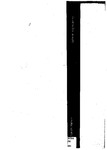Ludics for a Ludic Society. The Art and Politics of Play
| dc.contributor.supervisor | Ascott , Roy, Prof. | |
| dc.contributor.author | Jahrmann, Margarete | |
| dc.contributor.other | Faculty of Arts, Humanities and Business | en_US |
| dc.date.accessioned | 2011-05-13T09:52:18Z | |
| dc.date.available | 2011-05-13T09:52:18Z | |
| dc.date.issued | 2011 | |
| dc.identifier | 349600 | en_US |
| dc.identifier.uri | http://hdl.handle.net/10026.1/453 | |
| dc.description.abstract |
This dissertation provides an analysis of, and critical commentary on, the practice of playfulness as persistent phenomenon in the arts, technology and theory. Its aim is to introduce political reflections on agency through the study of playful technological artefacts, which were largely ignored in the recent discussions on game and play. Following the critical analysis of historic discourses and actual studies of play under differing auspices, and in order to understand play as inherently political agency, this thesis’ research question addresses the immersive effects of playful agency in symbolic exchange systems and in the material consciousness of the player. This thesis conducts an analysis of material cultures, in order to categorise play as technique of an inherent critique of technological culture. It traces the development of contemporary technological objects and their materiality in relation to the application of the concept of affordance in design theory. The author consequently proposes a new category of ‘play affordances’ in order to describe these new requirements of play found in consumer technologies. The structure of the analysis in the distinct chapters is informed by a stringent historic, theoretical and arts analysis and an alternating arts practice. The convergence of these elements leads to insights on further uses, options and perspectives of the research problems discussed, in particular in relation to the requirements of playful interaction in contemporary technologies, which increasingly radicalises the importance of play. The thesis’ hypothesis states that playful practices in arts and technologies provide models for political agency, like the strategic use of Con-Dividualities (Jahrmann 2000). This term describes the concept of shared identities in society or social media consumer technologies, as discussed in historic case studies and the author’s own arts practice, related to the modification of technologies as methodology of arts research. In this way the arts practice and theory of playfulness informs the emergence of a new methodology of research, intervention and participation in society through the arts of play, which is coined as Ludics, as an original outcome of this thesis. | en_US |
| dc.language.iso | en | en_US |
| dc.publisher | University of Plymouth | en_US |
| dc.subject | Playful practices | en_US |
| dc.subject | Con-Dividualities | |
| dc.subject | Shared identities | |
| dc.subject | Theory of playfulness | |
| dc.subject | Arts practice and theory of playfulness | |
| dc.subject | Ludics | |
| dc.subject | Game Art | |
| dc.subject | Jouissance | |
| dc.subject | Electronic networks | |
| dc.subject | Social networks | |
| dc.subject | Materialism | |
| dc.subject | Communications guerrilla | |
| dc.subject | Activism | |
| dc.title | Ludics for a Ludic Society. The Art and Politics of Play | en_US |
| dc.type | Thesis | |
| dc.identifier.doi | http://dx.doi.org/10.24382/4840 |
Files in this item
This item appears in the following Collection(s)
-
01 Research Theses Main Collection
Research Theses Main


